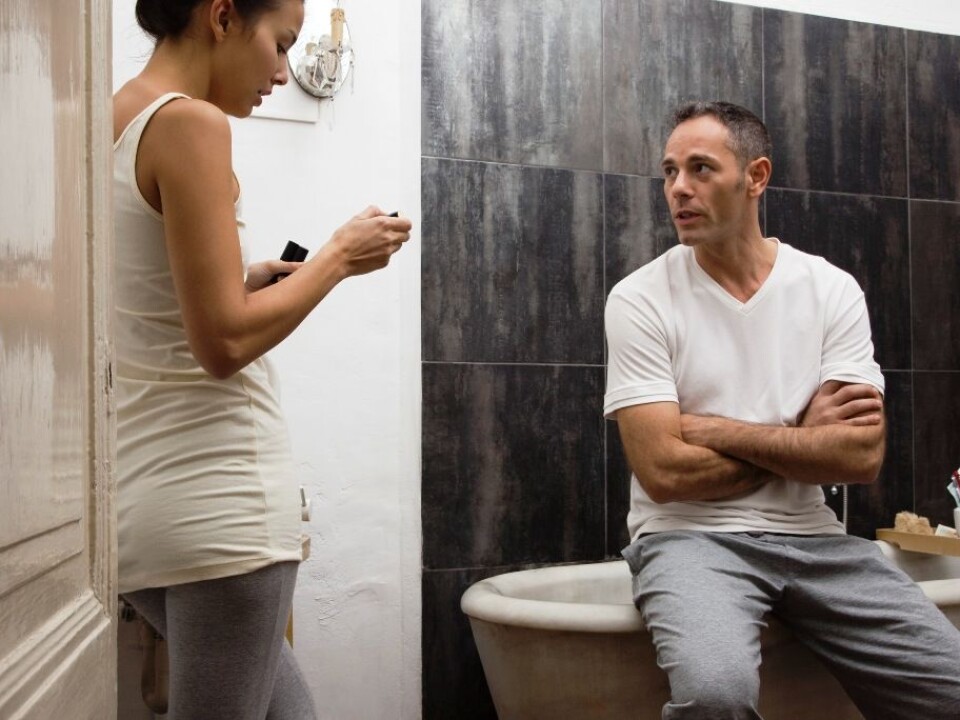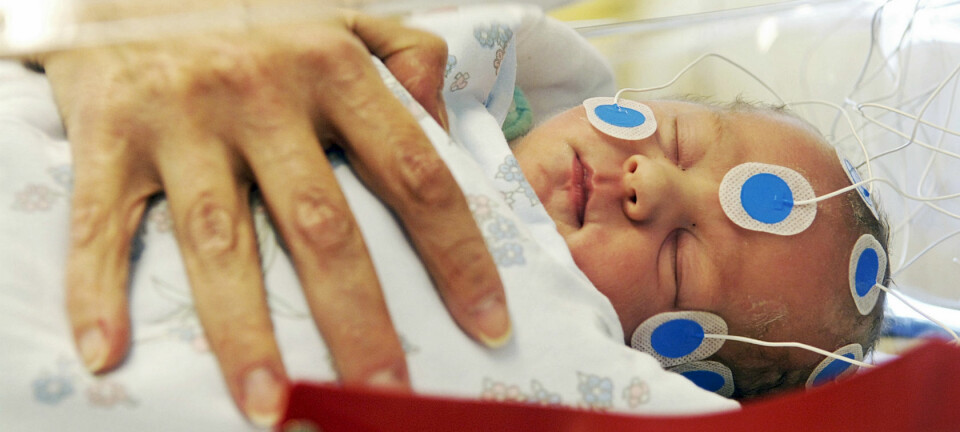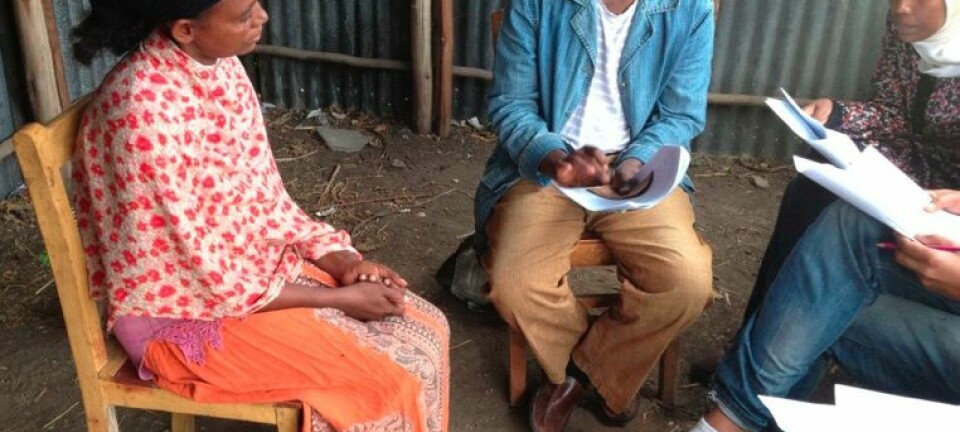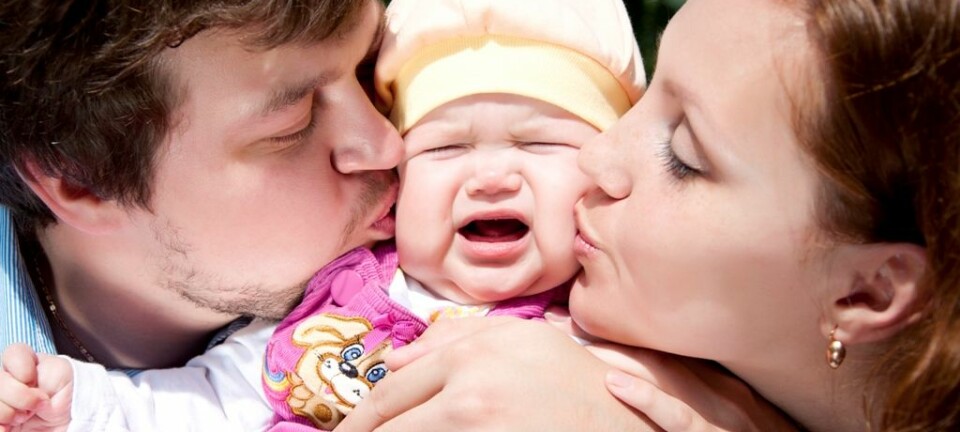
When two is company and three is a crowd
A Norwegian psychologist thinks parents should be given couples or marriage counselling both before and after having their first baby. His research shows that many fledgling parents struggle with their relationship.
Denne artikkelen er over ti år gammel og kan inneholde utdatert informasjon.
Psychologist and Family Therapist Øystein Mortensen, who is defending his PhD dissertation at the University of Bergen this week, points out that becoming a parent is one of the major transitions in life and demands enormous readjustments.
He has looked into whether or not the birth of a first child disrupts the relationships of Norwegian couples. Most couples find it disruptive, according to his study, which is based on responses in the Norwegian Mother and Child Cohort Study.
Baby shock
There are clear indications that couples expecting a child fail to prepare themselves for what it will be like to have a baby in the house. The higher their expectations, the more negative the impact of the infant on their relationship, according to his findings.
“My results show that couples become slightly more satisfied with their life together during the pregnancy, and then the crunch comes when the baby is born,” says Mortensen.

Several similar studies have shown that couples tend to become less satisfied with their relationship after having their first child. Many of these studies have been conducted in the USA.
Mortensen and colleagues found that two thirds of fledgling parents in Norway experienced this sort of chill in their relationship, even though Scandinavian society offers provisions that are not available to many young parents in the USA – such as job security and lengthy paid maternity/paternity leaves from work.
They also discovered that levels of education and salaries have no particular impact on whether a marriage or cohabitation goes south when the baby comes.
Halting self-realisation projects?
It’s no surprise that the overnight transition from being a childless couple to being parents with an infant can be tough. An American researcher, E.E. LeMasters, broached the subject when he published the report Parenthood as Crisis in 1957.
Newer studies indicate that the problem is mounting. Mortensen thinks that the shock that many couples experience when their first child is born could be linked to their ages. On average, couples are becoming parents several years later than previously, and have grown accustomed to having lots of leisure time and freedom.
“Individualistic ideologies have gained sway here in the West. We view life as a big self-realisation project in which demands for success are steadily rising.”
Along with the baby comes constraints on freedom – the person who is now the parent is no longer the first priority.
Quarrel quality
“Having children demands enormous adjustments and gives couples more reasons to start a quarrel. When we see that couples in both Norway and the USA have the same relationship problems after the birth of their first child, despite rather big differences in situations, we understand that this is about the internal dynamics between the couple.”
The third study in Mortensen’s doctoral dissertation shows that the way a couple quarrels can have a big impact on their life together after having their first child, particularly how often they argue.
He explains that couples who fare best after they have a child are more adept at avoiding negative and destructive quarrels. One in three couples are fortunate in not experiencing a cooling of their relationship after becoming parents. Some, of course, still find that they grow closer to one another.
“They refrain from making accusations or characterising one another derogatorily. They start their conflicts in a gentler way. The manner in which you start a conflict has a lot to say about how it will end,” says Mortensen.
He advises newly fledged parents to take care of one another and cultivate their attachment and intimacy, bearing in mind that this is also the best for the child.
“It has advantages for the child’s health, its psychological development, attachments and language development. Set time aside for your relationship as a couple. Get a babysitter now and then and retain the closeness you have in your relationship,” says the psychologist.
-------------------------
Read the Norwegian version of this article at forskning.no
Translated by: Glenn Ostling


































